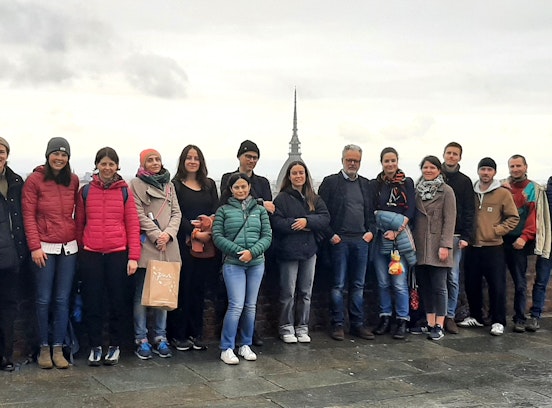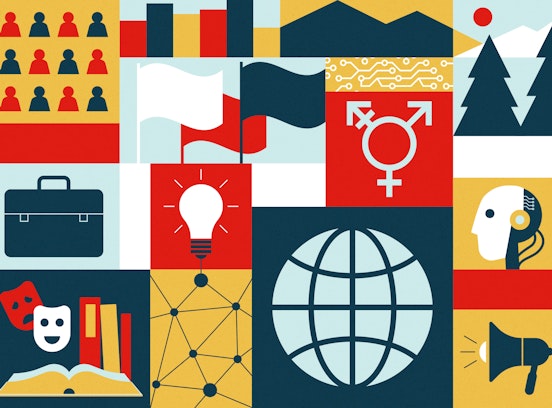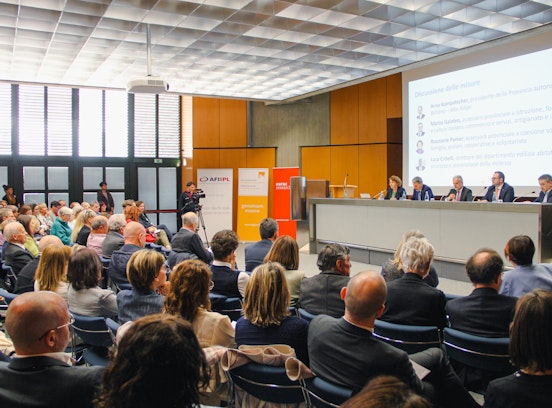Center for Advanced Studies - News & Events - Crafts digitised
Crafts digitised
The question of changing professional training in the craft sector through digitalisation was the focus of the first multiplier event of the Interreg project FuturCRAFT.
- Deutsch
- English
- Italiano
How is digitalisation changing professional training in the skilled crafts sector? The first multiplier event of the Interreg project FuturCRAFT explored precisely this question. Some answers could already be given, among others by Valeria Ferraretto, political scientist, and Roland Benedikter, co-head of the Center for Advanced Studies. The basis was the first general results of a Delphi analysis as well as interviews with experts.
Digitalisation is creating new occupational fields and jobs that will be particularly interesting for young people, universalists and women. Humans and machines or robots will cooperate in the future, Roland Benedikter and Valeria Ferraretto emphasised in their presentations. Nevertheless, the human being will continue to play the central role in the exercise of craft professions, even with the increasing importance of robotics. Companies, trade associations and competence centres are called upon to develop new learning concepts based on flexibly accessible modules. In this context, it was also up to the skilled crafts enterprises to push ahead with the introduction of mentoring programmes and to promote dialogue between old and new generations by creating digital platforms. The crafts of the future will be characterised by a combination between new technologies, products and services and traditional values, working methods, qualities and materials.
Digitalisation and the use of new technologies will make the skilled crafts increasingly attractive for young people and apprentices again. This was also emphasised by the holder of the Chair of Production Systems and Technologies at the University of Bolzano, Prof. Dr.-Ing. Dominik Matt, in his lecture on the challenges and opportunities for the skilled crafts sector due to digitalisation. Gustav Tschenett, German Education Director of the province, spoke about the training models in South Tyrol. He affirmed that there is a need for flexible and rapid adaptation of job profiles in order to be able to adapt optimally to social and market-related changes.
"Digitisation will be a great opportunity for future craftsmen and craftswomen, but only if the companies react to the changes with openness and actively take care of a change in their own company," Valeria Ferraretto and Roland Benedikter underlined. Training (in technical colleges but also in the companies themselves) plays an important role here. Likewise, new financing models and tax advantages should motivate companies to pursue digital innovation and invest in the education and training of their employees.
The recording of all presentations and discussions is now available on the YouTube channel of the National Association of Craftsmen.
FuturCRAFT - How is digitalisation changing professional training in the skilled crafts sector?









